|
The Bloom Blog Blooming this week in the environs of Abiquiú By Wildflowers of the Southern Rocky Mountains Found in wet areas near slow-moving water
Seen blooming in August by the Rio Chama Water Horehound is not a particularly showy plant. It grows up to three feet tall with the characteristic square stem of a mint, but it does not have aromatic leaves. It grows in similar habitat to Wild Mint which has lavender flowers and a distinctive aroma. The leaves are opposite and toothed. The tiny white tubular flowers with lavender markings grow in a whorl around the stem at the base of the leaves. Each flower has two stamens. Traditionally, a compound containing the entire plant was used for stomach cramps. Source. In modern times people use bugleweed for overactive thyroid (hyperthyroidism), premenstrual syndrome (PMS), insomnia, and other conditions, but there is no good scientific evidence to support these uses. Source. If you are trying to identify a different flower then you can check what other flowers bloom this month. If you cannot identify a flower from the website, send a photo and where you took it to [email protected]. Read online for tips.
0 Comments
The Bloom Blog Blooming this week in the environs of Abiquiú By Wildflowers of the Southern Rocky Mountains Found in open, rocky soil in mixed conifer forests
Seen blooming in August by FS Rd 137 in Carson NF Beardlip Penstemon has spikes of tubular flowers which are very attractive to hummingbirds. It grows to four feet tall with long, narrow, dark green leaves, mostly at the base of the plant. The flowers are 1½ inches long and have two long protruding upper lobes and three lower lobes with golden hairs in the throat. It blooms for many weeks. Native Americans had many medicinal uses for the plant. It was used for menstrual pain and stomachache, burns, coughs, gun wounds and arrow wounds, and as a diuretic. The chewed root was rubbed over the rabbit stick to ensure success in the hunt. A rabbit stick which was treated in this manner was sure to kill any rabbit that it was aimed at, provided the thrower had a good heart. Source. If you are trying to identify a different flower then you can check what other flowers bloom this month. If you cannot identify a flower from the website, send a photo and where you took it to [email protected]. Read online for tips. The Bloom Blog Blooming this week in the environs of Abiquiú By Wildflowers of the Southern Rocky Mountains Found on rocky hillsides, in canyons
Seen blooming in August in Plaza Blanca Wright’s Thelypody grows to seven feet tall with many branches tipped by showy flower heads that look like bottlebrushes. Leaves have smooth or toothed edges. The flowers are white to lavender with four petals and grow in loose clusters above many 3-inch-long thin seed pods. The pods grow horizontally to the stem or curve downwards. Traditionally Wright’s Thelypody has been used as a dermatological aid and as an eye medicine. Young plants were made into a stew with wild onions, wild celery, tallow or bits of meat. The Navajo tied a plant to the cradle bow to make baby sleep and the Tewa used it to make paint for pottery. Source. If you are trying to identify a different flower then you can check what other flowers bloom this month. If you cannot identify a flower from the website, send a photo and where you took it to [email protected]. Read online for tips. The Bloom Blog Blooming this week in the environs of Abiquiú By Wildflowers of the Southern Rocky Mountains Firewheel, Indian Blanket
Gaillardia pulchella Sunflower Family (Asteraceae) Found in dry, open areas Seen blooming in July in Abiquiu Gaillardia seeds are often included in wildflower mixes but it is a native plant that occurs naturally in our area. Firewheel grows to two feet high with a grayish stem. Leaves are up to three inches in length, with entire or lobed edges. Flowers are two to three inches across. Flower petals are quite deeply divided into three lobes at the tip, and may be all red, all yellow, or banded, reddish near the center and yellow at the tips. The central disk is reddish-purple. Flowers can bloom from May to August. Traditionally, the plant's root has been used to create a tea for treating gastroenteritis and for creating a poultice to apply to skin conditions. Additionally, a tea made from the plant has been used to soothe sore eyes and sore nipples, especially for breastfeeding mothers. An infusion of the plant was used to become a good drummer. The Kiowa tribe also considered the plant to be a symbol of good luck and used them for ornaments in their homes. Source. If you are trying to identify a different flower then you can check what other flowers bloom this month. If you cannot identify a flower from the website, send a photo and where you took it to [email protected]. Read online for tips. The Bloom Blog Blooming this week in the environs of Abiquiú By Wildflowers of the Southern Rocky Mountains Found in rocky soils, slopes, woodlands
Seen blooming in July on Canada Bonita Trail, Santa Fe National Forest Nodding Onion grows 12 to 18 inches with flat, grass-like leaves that smell of onion when cut or bruised. Tiny bell-shaped flowers droop in a cluster from a slender stem. Native American tribes used the juice of Nodding Onion to treat colds, colic, liver complaints, dropsy and hives, and a poultice of the onions was used to treat infection, sores, and swellings. Bulbs, stems, and flowers can be eaten raw or cooked in small amounts. Like chives, the flowers are an attractive and edible garnish for salads. It is said that the city of Chicago gets its name from the Algonquin Indian name for this plant, chigagou. Source. If you are trying to identify a different flower then you can check what other flowers bloom this month. If you cannot identify a flower from the website, send a photo and where you took it to [email protected]. Read online for tips. |
AuthorI am Marilyn Phillips, a native of England, whose love of nature and the outdoors from childhood brought me by a circuitous route to Crested Butte, Colorado in 1993 and 16 years later to northern New Mexico. My exploration of the many trails in these areas, my interest in wildflowers and photography, and career in computer system design came together in this creation. If you have any corrections, comments or questions, please contact me by email. Archives
September 2025
Categoriescopyright © 2020
|

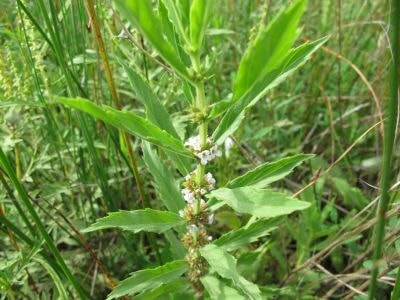
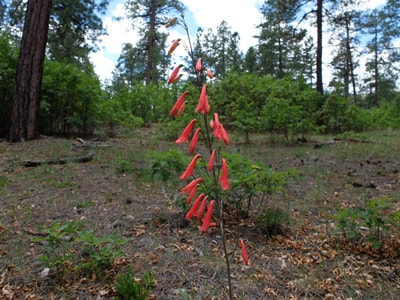
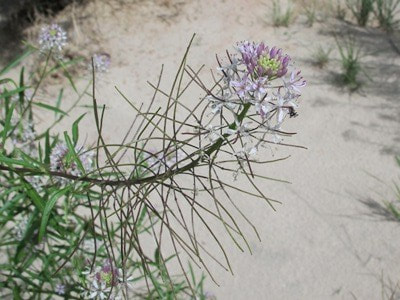
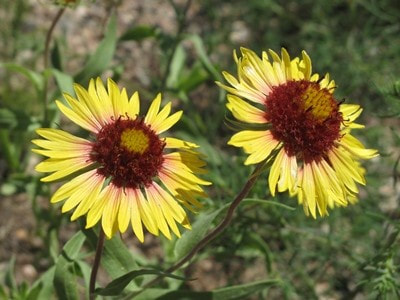
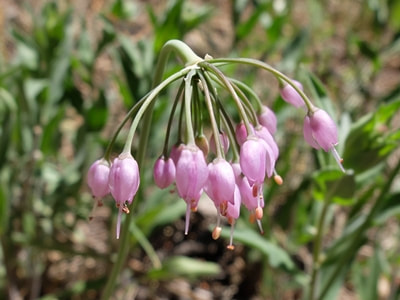

 RSS Feed
RSS Feed